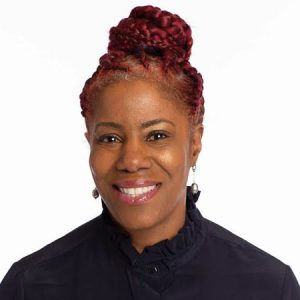Nov. 28, 2023

Story by Gracie Hedenberg
Undergraduate research teaches various skills, such as attention to detail, ability to follow procedures and teamwork. For Amanda Willingham, a senior Health Science major with an emphasis in Leadership and Policy, research improved reading comprehension and communication skills that she plans to use in her future law career.
Willingham recently worked on a research project with Idethia Shevon Harvey, an associate professor in the Department of Health Sciences, examining Black college students’ mental health and the stigma they face at predominantly white institutions.
“A lot of African American alumni and college students are speaking out about mental health, so there’s more research being done about how things can change,” Willingham said. “Although the stigma that we talk about in the manuscript is something that’s relatable to everybody, mental health often gets overlooked and looked down upon.”
Dr. Harvey’s research also investigates how the upbringing of Black college students can affect their mental health.
“Typically within the Black culture, [mental health] is something that is not readily discussed,” Dr. Harvey said. “And the symptoms are not identified, because they do not fit the traditional symptoms of depression, such as feeling sad or blue and not having energy. Research has shown that for Black people, depression symptoms can be anywhere from being irritated or having anger. … So culture really does play a role, not just for mental health, but for physical health as well.”
The primary investigator collected data for the manuscript through interviews with Black college students and alumni. Willingham then synthesized those ideas into a well-supported introduction bolstered by outside sources.
“When I research, I read long manuscripts and pick the relevant information out,” Willingham said. “I’ve realized that when you’re doing background information research, it’s good to have a lot of different points of view. It’s like all the researchers within a topic are collaborating.”
This collaboration does not always mean consensus, though. Mental health is unique and personal, with researchers finding different outcomes within a group of people with shared experiences. Researchers also draw from the work of their peers, adding their own data and research experience along the way. These details can lead to varied data sets and conclusions drawn from a shared pool of data.
This reality is part of the reason Willingham’s job both required and strengthened her attention to detail; many other manuscripts find what Dr. Harvey’s team has discovered, but others do not align.
To craft a strong introduction, Willingham had to understand the nuance of the scholarly sources she was engaging with to ensure the information concurs with the manuscript. Then she must communicate that information in a succinct way that blends with Dr. Harvey’s team’s findings.
“I have always liked to write, but this way of writing for a scholarly, professional research manuscript is something that I was not used to,” Willingham said. “I’ve never done research to this extent before. Being able to read and comprehend what I’m reading for this internship has given me opportunities to find deeper understanding and draw conclusions from what I’m reading.”
In a law career, it’s essential to support your case with the evidence at hand. The skills she has learned go beyond compiling and communicating the manuscript’s introduction — her experiences in the College of Health Sciences will be vital as she pursues a career in medical malpractice law.
“Even if students are not going to become pro researchers, the skills they gain can help them,” Dr. Harvey said. “For Amanda, she’s really just looking at how to develop research skills as related to secondary data analysis. Detail-oriented tasks like data management help you think critically and strategically. Those skills carry over into your career.”
